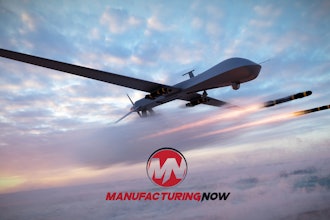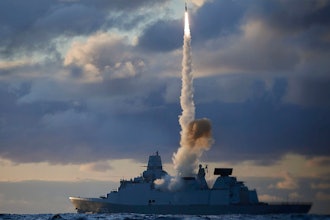The world of manufacturing and the soldier seem very far apart at first glance, but they both operate in uncertain and rapidly changing environments. The workforce goes to work, while the military goes to war. Thankfully, in the work environment, people do not often die, but companies can fail and people’s livelihoods can be destroyed through bad decisions.
Despite a tough climate, globally, manufacturing has continued to grow over the past year — albeit only a slight growth. However, there are always complex problems which can lie just outside the industry’s control ready to work against them.
Whether it’s problems caused by a sudden change in exchange rates changing costs and profits; or the disruption and reputation damage from recalling a faulty production run; or even a major crisis (for instance, the recent horsemeat scandal and processed meat product makers); or a competitor bringing out a ground-breaking product, manufacturers can find their business in turbulent and highly competitive situations.
In the face of adversity many people freeze or go into denial. Military training is all about enabling people to think quickly and respond to rapidly-changing events despite uncertainty. Strong values are an important part of this as they create a unity of purpose and culture.
When I left the military and entered the world of business, I found that many companies lacked direction and leadership. I was shocked to find that values were often brushed over, with most employees unable to tell me what their company was really about. This told me there was a lack of clarity and direction throughout the business.
A clear and shared purpose is needed by all teams, whether a company or a company of soldiers so they can get through tough times. A commando understands this and aims to achieve their mission come-what-may. Businesses can learn from these ideals.
Here are five top tips I learned in the military that could be effectively applied by manufacturing businesses to achieve great results:
1. Company values
In the military, values are taught by training. A commando’s training is based on experiences and the learning is deep. If you stray from them, someone tells you. It’s made very clear to you that this is not just important, it’s essential to survival.
Remind employees of core values — it’s what keeps people motivated. The manufacturing industry may seem repetitive at times, but values help drive productivity. People should feel the importance of the work at hand and understand the values of the company and what they are trying to achieve. Values need to be moral and ethical, and not about profit.
2. Where are you going?
Values are important as they direct the vision of the company. Values are what your company stands for, and the vision is what you are trying to achieve.
John F Kennedy’s vision was to “to put a man on the moon and return him to earth by the end of the decade.” The vision was motivating and inspiring. So much so, that when a high-powered group visited NASA headquarters, they asked the janitor what he did. He answered, “I’m helping put a man on the moon.”
No matter whether it’s someone working on the production line or at board level, the vision will help lead them to want to achieve great things for a business. Do your employees understand the vision — how does their work help your products, and how do your products make our lives better?
3. Is everyone aligned?
A commando constantly asks “Is everyone aligned?” He must always be clear on who is doing what. The result means that people think for themselves. Alignment lies with the mission, not the individual.
It’s great to have everyone working towards the same vision, but companies need to ensure that their people are clear on their role as an individual. Do the employees cleaning the floor of a factory understand how their work helps ensure a safe and productive workplace and happy customers? Do the employees working in HR department know how they fit into helping you manufacture great goods?
Employees should be aware of their individual goals and never be allowed to forget how they support the main business’s success.
4. Do we have team spirit?
You must never allow team spirit to be forgotten. It’s something that can often be sky-high, and other times at rock-bottom, but it’s integral to morale. Employees will find themselves in tough situations, where close relationships with colleagues improves attitudes.
My first day of training in the military was relatively easy. We were made to feel relaxed. We were told to go off to drink together in the evening. “They want to build team spirit,” we thought, fair enough. We drank too much.
In the morning we woke at 2am and were summoned to a mid-night personal training session. They didn’t go easy on us. Despite the effort and pain, there was a shared sense of being in the situation together. That was real bonding that drove team spirit for years to come.
In the manufacturing industry, workers might not be forced to all-night training sessions, but building a winning spirit will help employees to work as a team to the very best of their ability — way beyond the efforts you will get by seeking to motivate them with money.
5. Effective leadership
I remember a brilliant commander who, as tension and uncertainty and frenzy mounted, decided to make his 200 troops a cup of tea. This might have not directly helped the mission at hand, but it told the troops that someone was in control of the situation, and it kept everyone calm and focused in a tough situation.
You should be leading your employees and ensuring that they believe in you — no matter what course of action this might involve. You must be prepared to take hands-on approach if the situation calls for it. But leadership does not mean excessive involvement. You must be able to trust your staff to deliver, but provide them with direction and support.
Damian McKinney is a former Royal Marine and founder of business execution consultants McKinney Rogers. He is author of The Commando Way, which looks at how businesses have been inspired to great results through applying the commando way.






















